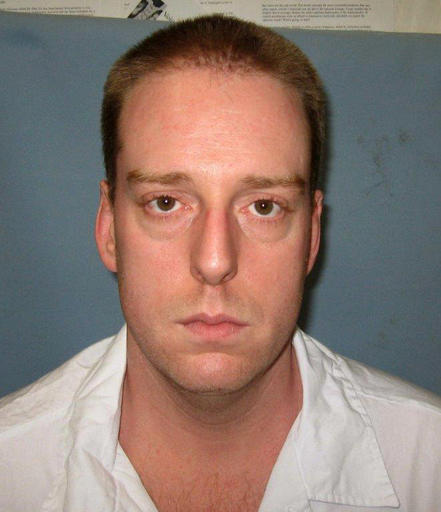US lethal injection debate revived after long execution

This undated photo provided by the Alabama Department of Corrections shows Ronald Bert Smith Jr.. Smith Jr., an Alabama inmate coughed repeatedly and his upper body heaved for at least 13 minutes during an execution, Thursday, Dec. 8, 2016, using a drug that has previously been used in problematic lethal injections in at least three other states. (Alabama Department of Corrections via AP, File)
WASHINGTON—A death row inmate in Alabama coughed and gasped for 13 minutes during his execution, witnesses say — an incident that has revived concerns about the effectiveness of lethal injection as a means of capital punishment.
Ronald Smith, 45, was put to death for the 1994 murder of a convenience store clerk.
All told, the execution Thursday night took 34 minutes, during which Smith was apparently struggling for breath, according to Kent Faulk, a journalist from al.com, one of the media witnesses.
“There will be an autopsy that will be done on Mr. Smith” to find out if there were any “irregularities” in the procedure, said Alabama’s prison commissioner Jefferson Dunn.
Prisons spokesman Bob Horton told Agence France-Presse (AFP) the department of corrections followed the execution protocol as stipulated by law.
“Early in the execution, Smith, with eyes closed, did cough but at no time during the execution was there observational evidence that he suffered,” said Horton.
The US states where the death penalty is still practiced are facing a shortage in the substances used in lethal injections, in part because some pharmaceutical companies refuse to provide the drugs.
READ: Pfizer says it’s blocking use of drugs for lethal injections
Many of the pharmaceutical companies are based in Europe, which has abolished capital punishment.
To get around the shortage, some states such as Alabama have adopted a three-drug method: the first puts the prisoner to sleep, the second causes paralysis and the third stops the heart.
Alabama uses the sedative midazolam for the first phase. Critics say the drug doesn’t induce a deep state of unconsciousness before the other drugs are given.
Smith’s last words, when asked if he had anything to say, were “No, Ma’am,” officials said.
But his lips continued to move before and after the drugs were given to him, and he clenched his fist after the first injection, Faulk said.
“At times, his left eye also appeared to be slightly open,” Faulk wrote.
Prisons officials did not comment when asked by AFP about Faulk’s account.
At least two states — Virginia and Ohio — are planning to start using midazolam early next year, which has anti-death penalty advocates worried.
The United States has seen several “botched” executions since January 2014, including that of Dennis McGuire, who died after 25 minutes, and Clayton Lockett, whose execution took 43 minutes.
READ: Lethal injections face scrutiny after two-hour US execution